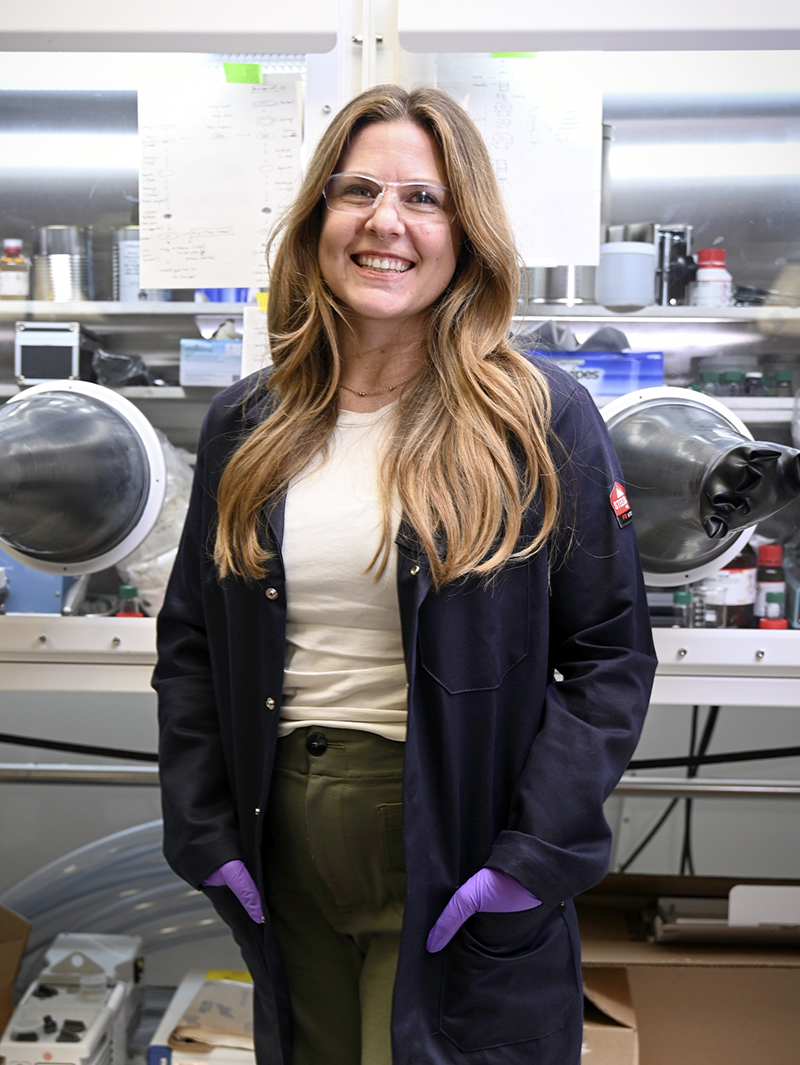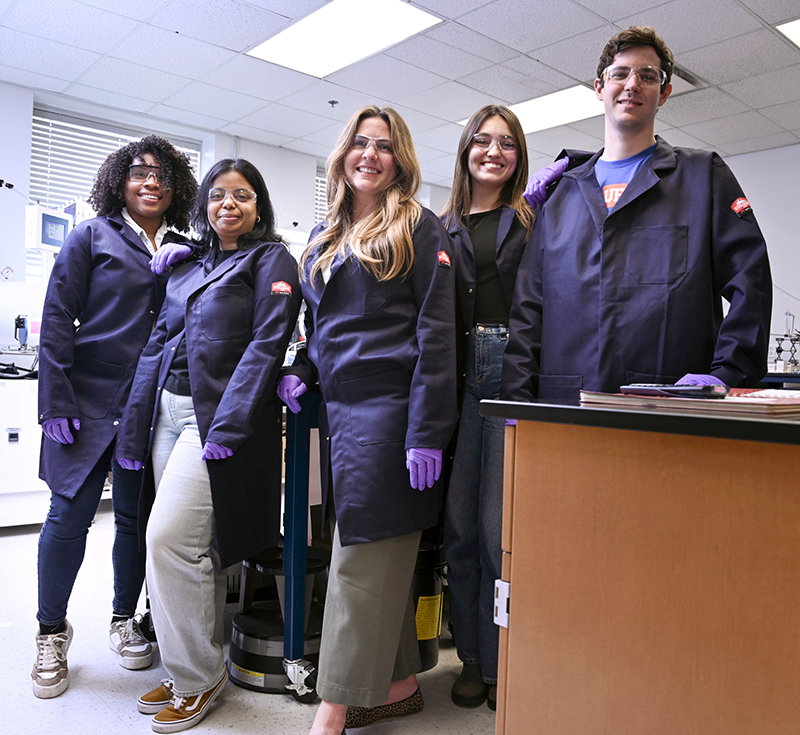As demand for cleaner energy grows, so does the need for sustainable battery technologies. At the University of Florida, Megan Butala, Ph.D., an assistant professor of materials science and engineering, is exploring a promising alternative to today’s lithium-ion batteries. Her research focuses on disordered rocksalt oxides (DRXs), which could reduce reliance on scarce and environmentally problematic materials like cobalt and nickel.

Supported by a National Science Foundation CAREER Award, Butala’s work aims to better understand the chemistry behind DRXs, a class of materials that uses more abundant elements, such as manganese and iron. While DRXs hold the potential for making batteries more sustainable and less expensive, their energy storage performance still lags behind conventional lithium-ion batteries.
A primary challenge for DRXs is their ability to store and release lithium ions more efficiently. By determining how the types and ratios of atoms in DRX materials affect their atomic scale arrangement and energy storage, her team hopes to develop strategies to improve their storage capacity and long-term stability.
“By understanding the fundamental chemistry that governs atomic arrangements in these materials, we can develop strategies to design DRXs that compete with or surpass today’s battery technologies,” Butala said.
If successful, the research could have wide-ranging impacts. For instance, DRXs could make electric vehicle batteries cheaper, more sustainable, and longer lasting. Renewable energy storage systems, which currently rely heavily on lithium-ion batteries, could also benefit from the development of DRXs, helping to stabilize power grids and support the transition to cleaner energy sources.
“Energy storage is a critical part of building a sustainable future,” Butala explains. “Finding alternatives to cobalt and nickel is essential, not only to reduce costs but also to address the ethical and environmental concerns tied to their extraction.”
Butala’s research also goes beyond the lab, involving educational outreach and training. With that in mind, her team is developing innovative ways to make complex scientific concepts more accessible, including drawing from her dance background to explain ideas like lithium-ion transport and chemical structure.
“I will partner with UF College of the Arts faculty and use my affiliation with the UF Center for Arts, Migration, and Entrepreneurship to connect the creative work happening across science, engineering, and the arts,” Butala said. “By combining science researchers and artists, we hope to inspire more people to connect with science in ways that feel approachable and meaningful.”
“Fundamental materials and chemistry were essential for developing current commercial battery technology, and my team and I look forward to establishing new foundational knowledge for next-generation Li-ion batteries.”
Megan Butala, Ph.D.

The program also supports hands-on research opportunities for undergraduate and high school students, helping inspire the next generation of scientists and engineers.
“Fundamental materials and chemistry were essential for developing current commercial battery technology, and my team and I look forward to establishing new foundational knowledge for next-generation Li-ion batteries,” she said.
By advancing DRX research and fostering interdisciplinary collaboration, Butala’s work addresses a critical challenge in the energy transition: making sustainable, high-performing batteries a reality.
